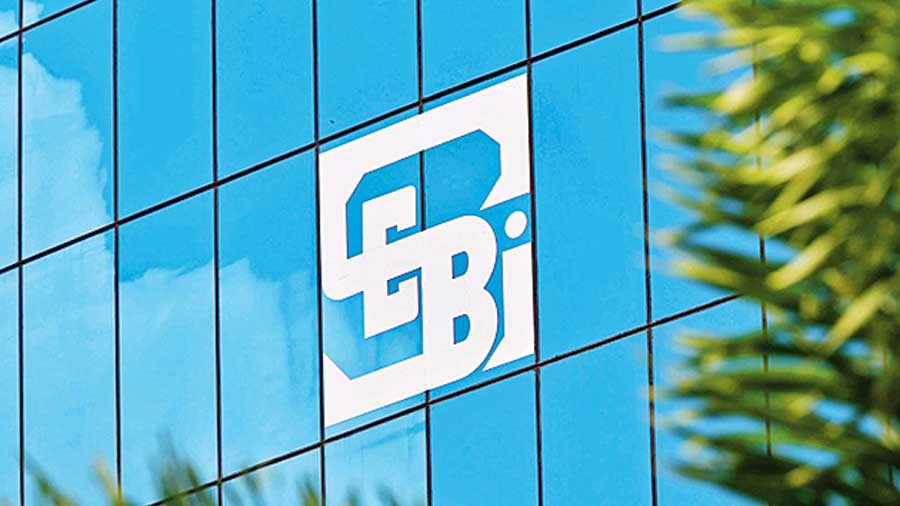Market regulator SEBI wants companies to divulge all secret pacts between key shareholders that have a bearing or influence on management control of listed entities.
The Securities and Exchange Board of India floated a discussion paper on Tuesday that makes it mandatory for listed companies to disclose “shareholder agreements, joint venture agreements, family settlement agreements (to the extent that it impacts management and control of the listed entity), and agreements with media companies.”
The move is designed to strengthen corporate governance at listed entities.
The market regulator has said that there have been several instances where promoters of companies have signed agreements with third parties that impose serious restrictions on the way the companies are run.
The disclosures will have to cover issues like agreements that bind listed entities, special rights granted to certain shareholders, sale, disposal or lease of assets of a listed entity outside the scope of a scheme of arrangement, and board permanency at these companies.
“Revisions or amendments and termination of such agreements will also have to be disclosed,” the discussion paper said.
The paper said that agreements that “bind” listed entities – and are not apparent in the normal course of business – “have to be disclosed as material information to shareholders”.
If the listed entity is not party to an agreement, then an obligation must be placed on the parties entering into such agreements to disclose it to the company, the paper added. This would ensure that such secret pacts would eventually be disclosed to the stock exchanges for wider dissemination.
“Non-disclosure of material information creates information symmetry and results in significant market reaction when it is known to the public at large at a later stage,” SEBI said in the paper.
To overcome the challenges that such agreements between promoters or controlling shareholders with third parties, there is a need to modify the existing provisions of the Listing Obligations and Disclosure Requirements (LODR) Regulations “for better clarity and adequate disclosure of such types of agreements,” the paper added.
The regulator also proposed board and shareholder scrutiny of agreements which impose liability or restrictions on the listed entity.
The board of directors will have to provide a detailed rationale to explain why the agreement is in the economic interest of the listed entity.
Such agreements cannot be implemented unless and until they have been approved by the shareholders of the listed entity via a special resolution, which means that the majority of the minority shareholders must give their approval.
The proposals will apply to existing agreements as well. The parties to such agreements will have to disclose them to the stock exchanges by May 31.
The board will have to provide an opinion on it and this has to be placed before the shareholders for ratification at the first AGM or EGM post April 1 this year.
The paper also seeks to address the complicated issue of perpetual or special rights enjoyed by certain shareholders.
The regulator said that special rights – a tool used to attract investments prior to listing – violate the principle of rights proportional to investment and must be curtailed. Therefore, it proposed that any special rights should be subject to shareholder approval once every five years.
Any special rights under existing shareholder agreements will have to be renewed within a period of five years from the date of notification of the amendment to the listing regulations, the paper said.
Board permanency
SEBI said that a few promoters enjoy permanency on the board even after substantial dilution of their stake and ceding control of the company, thereby giving them an undue advantage.
Under the existing company law, some directors who are classified as non-executive directors (NEDs) – other than independent directors – are allowed to be appointed to the board of a company as a director without being liable to “retirement by rotation” and without any defined tenure.
Consequently, the shareholders of listed entities do not get the opportunity to evaluate the performance of such directors. This allows them to serve on the boards of companies for as long as they desire, thereby enjoying “board permanency”.
The market regulator proposed that as on March 31, 2024, if there is any director serving on the board of a listed entity whose appointment has not been approved by the shareholders during the past five years i.e from April 1, 2019, the listed entity will be required to obtain shareholders’ approval in the first AGM to be held after April 1, 2024 in order to ensure his or her continuation on the board.
From April 1, 2024, the listed entity shall ensure that all directors serving on the board or appointed to the board is put up to shareholders for approval at least once in every five years.
The regulator has invited comments on all these proposals till March 7.











